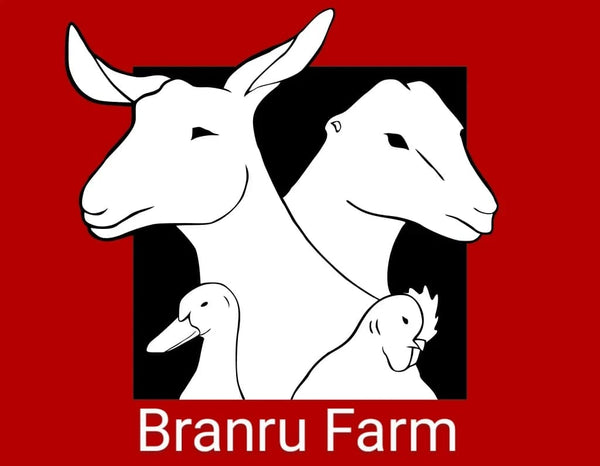At Branru Farm , we take protecting our dairy goats quite seriously. They are our babies, so goat health is a top priority. Particularly if you are starting out as a brand new goat owner, you may not know all of the ins and outs of keeping healthy goats. The most important thing is to stay proactive and familiarize yourself with diseases they can get and general goat health maintenance requirements.
Essential Vaccinations
Although there are some variations between breeds, keeping goats healthy is fairly universal when it comes to vaccination requirements. For example, goats all need the CDT (Clostridium perfringens type C and D and tetanus) vaccine. It is also important for does to get a CDT booster before giving birth. That way the colostrum (first milk) the kids drink can protect them also. As far as ongoing goat health with regards to CDT vaccination, there are general guidelines below, but it's a good idea to speak to your veterinarian for instructions specific to your area.
Kids typically start CDT vaccinations after five or six weeks and get a booster three to four weeks later.
If the doe is not properly vaccinated before the birth of the kid or its vaccination history is unknown, kids usually need a first vaccination at seven to twenty-one days old and a booster three to four weeks later.
Adult goats need annual CDT boosters, usually. Typically, those boosters are administered 30 days before breeding season starts. Although, depending on herd size and individual goat history, it may be more convenient to do it whenever other herd members are also getting boosters.
If an adult goat is new to your herd and you don't know its vaccination history, it should receive two initial doses spaced three to six weeks apart. Then administer boosters annually.
Again, these are general guidelines. We recommend speaking to your veterinarian to establish the right vaccination schedule for your goats.
Optional Vaccinations
Whether you have dairy goats and use their milk to make products like our vanilla rose goat milk body lotion or you have goats as pets or for other purposes, you also need to make decisions about optional vaccines for them.
Here are some optional vaccines to consider:
Caseous Lymphadenitis (CL)
Sore Mouth (Contagious Ecthyma or Orf)
Rabies
Selenium/Vitamin E to Prevent White Muscle Disease
Some of the above vaccines are not necessary under some circumstances or in specific geographic areas. The can also sometimes have side effects. Therefore, you should speak to a local vet about the best vaccines for your herd.
Managing Internal Parasites
Goat health includes more than just vaccines. Parasites can also be major problems for a herd. We always want our goats to remain parasite-free so they can stay healthy and help us make the products our customers love, such as our Aged Leather scented goat milk soap . Without proper parasite treatment, they can face a wide range of problems, including impeded growth and, under the worst circumstances, death.
Often keeping goats parasite-free requires regular deworming. Deworming schedules are often based on the environment in which the herd lives. For example, yearly deworming is often done in hot, dry areas. If you live in a more humid climate, you might need to do more frequent deworming for successful goat keeping.
Types of Anthelmintics (Dewormers)
There are multiple anthelmintics (deworming agents) available for goats. Some examples include moxidectin (Cydectin), albendazole (Valbazen), and Ivermectin (Ivomec). If you want to keep healthy goats, you can't always use the same dewormer for all of them. For example, Valbazen is not for use when does are pregnant because it can harm the unborn kids. You might also opt to use an herbal dewormer, I recommend Molly's Herbals!
Deworming Through Pasture Management
Using actual deworming medication will help you keep healthy goats, but you can also help the situation with proper pasture management. Rotational grazing can help prevent the possibility of high parasite counts. One good option is to rotate goats with chickens because the chickens will eat many of the larvae and parasites left behind by the goats. The larger your herd, the more important regular rotational grazing may become. We have a small herd here that we use to produce our goat milk soap and body lotion, but we still strive to maintain healthy grazing environments for our goats.
Managing External Parasites
A final bit of goat keeping advice, when it comes to health maintenance, is you may need to treat your herd for lice, ticks, and other external parasites. They can cause goat health to go downhill quickly when untreated.
There are several topical parasite treatments you can use, but some shouldn't be used in certain situations. For instance, topical permethrin-based products are not good to use on dairy goats, but those containing zeta-cypermethrin are typically fine to use on a dairy herd.
Nevertheless, the final say should always be the veterinarian's. It is also worth noting that many parasites like only certain animal species or only live in particular climates. Depending on your location and the other types of animals you may be keeping, you might need more or fewer external parasite treatments.

